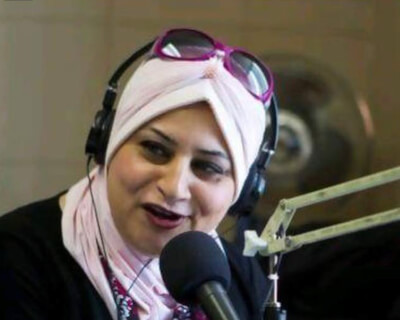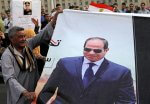Hezbollah leader Sayyed Hassan Nasrallah is stepping up his criticism of Saudi Arabia and their military excursion in Yemen. Hezbollah and Saudi Arabia are historical bitter enemies.
By Ali Rizk

In his latest speech Hezbollah’s secretary general Sayyed Hassan Nasrallah essentially called for a Sunni uprising against Al-Saud, and more specifically against the policies of the Saudi monarchy under the leadership of King Salman. Although the speech was made on the occasion of a ceremony to express solidarity with the people of Yemen, this call is not tied merely to the war on Yemen, but also to the wider agenda of the new Saudi monarchy.
Saudi Arabia under King Salman (who according to former Al-Qaeda operative Zakaria Moussaoui has in the past provided support to Al-Qaeda) has sought to sectarianize the region by attempting to build a unified Sunni bloc – with the aim of portraying Saudi Arabia as the champion of the Sunni world against “Shiite Iran” and its allies. The new Saudi monarchy has attempted to build bridges with Turkey, with the two recently joining forces to allow militants from the Al-Qaeda affiliated Al-Nusra front and other similar groups to take over the Syrian city of Idlib.
It has also reportedly pressed Egyptian president Abdul Fatah Al-Sissi to allow the Egyptian Muslim brotherhood a role in governing the country (albeit unsuccessfully). Such an agenda takes aim not only at Yemen, but all of Iran’s regional allies, such as Hezbollah itself- and therefore Lebanon, in addition to Syria and even Iraq under prime minister Haidar Al-Abadi.(who is seen by Washington as an ally) Not to mention how this “sectarianization” would threaten all the regions minorities and even Sunnis who do not approve the sectarian agenda.
What’s more of course is that such an atmosphere creates the perfect breeding ground for Sunni radicalization and extremism. This helps explain why Sayyed Hassan has been so outspoken in his criticism of Saudi Arabia. But what is perhaps more important is how he has skillfully capitalized on the recent setbacks Saudi Arabia has suffered ,especially those related to the war on Yemen. In capitalizing on these setbacks Sayyed Hasan’s call for a Sunni uprising against Al-Saud includes a vital element: stripping the royal family of its supposed entitlement to being the champion of the Sunni world because of the presence of the two holy shrines in Mecca and Medina.
The war on Yemen exposed the limits of the new Saudi Arabia’s monarchy’s agenda and the differences between Saudi Arabia and some of its supposed allies regarding how far they were willing to go in implementing this agenda. The major setback was Pakistan’s refusal to join the Saudi led war on Yemen, which led to a harsh exchange of words between Islamabad and some Gulf capitals. Baring in mind these developments, Sayyed Hassan recalled the days of the founder of modern day Saudi Arabia King Abdul Aziz Al-Saud, back in 1926.
In a clear aim at Al-Saud’s “Sunni credentials”, the leader of Hezbollah spoke of how King Abdul Aziz and his Wahhabi allies embarked on a campaign of destruction of religious sites and tombs belonging to family members and companions of Prophet Muhammad. He further elaborated that the Wahhabis were on the verge of destroying the tomb of the prophet of Islam himself, and that two countries played the major role in preventing this act: Egypt under the leadership of Al-Azhar, and modern day Pakistan.
Another aspect of Sayyed Hassan’s speech that also falls into the category of stripping Al-Saud of its entitlement to being “the champion of the Sunni world” was his comparison between Saudi Arabia and Israel. He spoke at length of how Saudi Arabia’s bombardment of a Muslim people resembled what Israel has done in Lebanon and Gaza, not to mention his statement that the biggest losers as a result of the Saudi policies were the Palestinians and the biggest winners were Israel and its Prime Minister Benjamin Netanyahu.
Therefore one could say that Hezbollah is exercising a strategy of “desectarianization” to counter Al-Saud’s “sectarianization”.
One should not underestimate the impact of Sayyed Hassan’s words on the masses in Egypt, Pakistan, and elsewhere. Notwithstanding the attempts to demonize and sectarianize Hezbollah because of its role in Syria, the movement is still regarded highly amongst many of the masses for being a force that was able to militarily defeat Israel in 2006. Hence Sayyed Hassan’s call for Muslims to rise up and say to Saudi Arabia “enough” will certainly not go down well with Al-Saud.
On a final note, Sayyed Hassan’s strategy of “desectarianization” fits in with what the Obama administration says it wants to achieve. The Obama administration says it does not want sectarian conflict and wants to “pivot to Asia” and avoid being sucked into regional conflicts. If this is the case the White House should embrace what Hezbollah’s leader has said and cease supporting Al-Saud’s claim to leadership of the Sunni world.


- Israelisnipers shooting and killing hospital workers in Gaza - December 11, 2023
- CAIR Condemns Israeli Executions of Wounded, Unarmed Palestinian in West Bank - December 11, 2023
- Arab and Muslim American voters face a “simple choice” between Biden’s inhumanity and Trump’s edgy politics - December 9, 2023
























